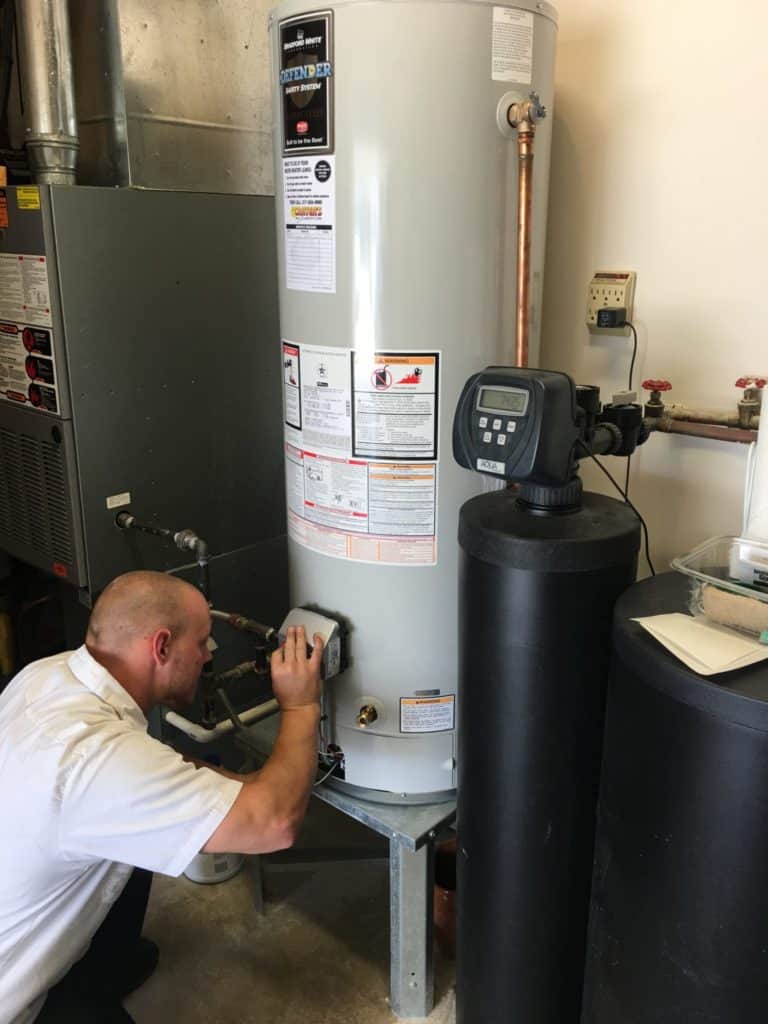Handling the Usual Hot Water Heater Emergency Challenges
Handling the Usual Hot Water Heater Emergency Challenges
Blog Article
This post in the next paragraphs relating to Is Your Water Heater Leaking? is fairly stimulating. You should take a look.

A water heater is just one of one of the most essential fundamental appliances that can be discovered in a residence. With hot water heater, you don't need to undergo the stress and anxiety of home heating water manually each time there is a requirement to wash, wash, or the recipes. There is always a possibility that your water heating unit would certainly act up as with many mechanical devices.
It is necessary to note any type of little malfunction and tackle it rapidly before things leave hand. Most times, your hot water heater starts to malfunction when there is a build-up of debris as a result of continual use. As a precaution, regular flushing of your water heater is advised to prevent debris buildup and also avoid useful failure.
Typical water heater emergency situations and how to manage them
Too little hot water
It might be that the water heating unit can not sustain the hot water need for your apartment or condo. You could update your water heating unit to one with a bigger capability.
Varying water temperature level.
Your water heating unit might start producing water of different temperature levels normally ice hot or chilly warm. There might be a requirement to replace either the thermostat or the home heating system of your water heater.
Leaking water heater storage tank.
In this scenario, you must turn off your water heater, enable it to cool down, as well as meticulously look for the source of the trouble. At times, all you need to do is to tighten a few screws or pipe links in instances of minor leaks. If this doesn't work as well as the leak persists, you might need to employ the solutions of a service technician for an appropriate replacement.
Stained or stinky water
When this occurs, you require to understand if the concern is from the tank or the water source. If there is no amusing smell when you run cool water, after that you are specific that it is your water heating system that is faulty. The smelly water can be triggered by rust or the build-up of microorganisms or sediments in the water heating unit storage tank.
Verdict
Some home owners ignore little warning as well as minor faults in their hot water heater system. This only brings about further damage as well as a possible total malfunction of your home appliance. You must manage your hot water heater mistakes as quickly as they come up to avoid more costs and unnecessary emergency troubles.
With water heaters, you don't need to go through the stress and anxiety of heating water manually every time there is a need to take a bathroom, do the laundry, or the dishes. It might be that the water heating unit can not support the hot water demand for your apartment or condo. Your water heating system could begin producing water of various temperatures generally ice chilly or hot warm. If there is no amusing scent when you run chilly water, after that you are particular that it is your water heating system that is malfunctioning. The stinky water can be caused by corrosion or the accumulation of bacteria or debris in the water heating unit container.
Common Water Heater Issues and What You Should Do
What Type of Water Heater Do You Have?
Before we begin it’s first important that you identify the type of water heater you have on your property. There are two main types of water heaters out there: conventional and high efficiency.
Both of these types of products typically use either gas or electricity to heat power. There are also solar water heaters that use a thermal collector on the roof or yard to heat the water.
While these models are not as common, they can cut heating costs in half. In this article, we will focus on conventional and high efficiency.
How Do My Electric and Gas Water Heater Work?
Though they look similar, electric and gas water heaters work very differently. It’s important to know their basic function because often problems can be specific to the heating source.
In the electric model, a thermostat on the side of the machine detects the temperature of the water in the tank. When the temperature needs to rise electricity flows to a heating element suspended in the water.
Gas models also use a thermostat device — typically with a mercury sensor at the tip and an additional sensor called a thermocouple. The thermocouple detects whether the pilot light is on and controls the flow of gas.
When the thermostat drops below the appropriate level gas is released which becomes ignited by the pilot light. The flame heats the bottom of the water tank which causes hot water to rise and cold water to drop.
This natural circulation continues until the water reaches the desired temperature. Then, the thermostat triggers the gas control valve to shut off the flow of gas.
What Are the Most Common Issues and How Do You Fix Them?
https://happyhiller.com/blog/common-water-heater-issues-and-what-you-should-do/

We had been shown that editorial about Is Your Water Heater Leaking? from an associate on our other web property. Sharing is good. Helping people is fun. Thanks for your time spent reading it.
Fix it ASAP! Call. Report this page